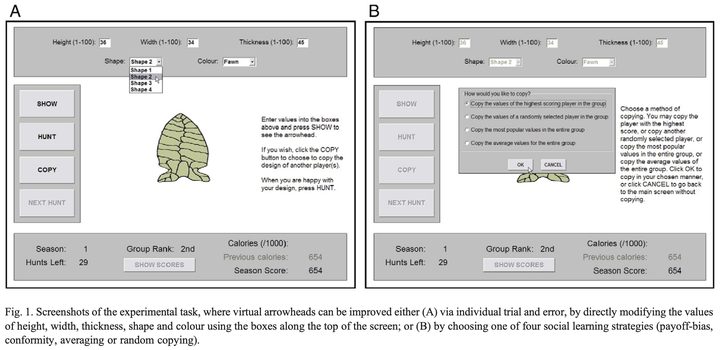An experimental comparison of human social learning strategies: payoff-biased social learning is adaptive but underused

Abstract
Analytical models have identified a set of social learning strategies that are predicted to be adaptive relative to individual (asocial) learning. In the present study, human participants engaged in an ecologically valid artifact-design task with the opportunity to engage in a range of social learning strategies: payoff bias, conformity, averaging and random copying. The artifact (an arrowhead) was composed of multiple continuous and discrete attributes which jointly generated a complex multimodal adaptive landscape that likely reflects actual cultural fitness environments. Participants exhibited a mix of individual learning and payoff-biased social learning, with negligible frequencies of the other social learning strategies. This preference for payoff-biased social learning was evident from the initial trials, suggesting that participants came into the study with an intrinsic preference for this strategy. There was also a small but significant increase in the frequency of payoff-biased social learning over sessions, suggesting that strategy choice may itself be subject to learning. Frequency of payoff-biased social learning predicted both absolute and relative success in the task, especially in a multimodal (rather than unimodal) fitness environment. This effect was driven by a minority of hardcore social learners who copied the best group member on more than half of trials. These hardcore social learners were also above-average individual learners, suggesting a link between individual and social learning ability. The lower-than-expected frequency of social learning may reflect the existence of information producer extendash scrounger dynamics in human populations.